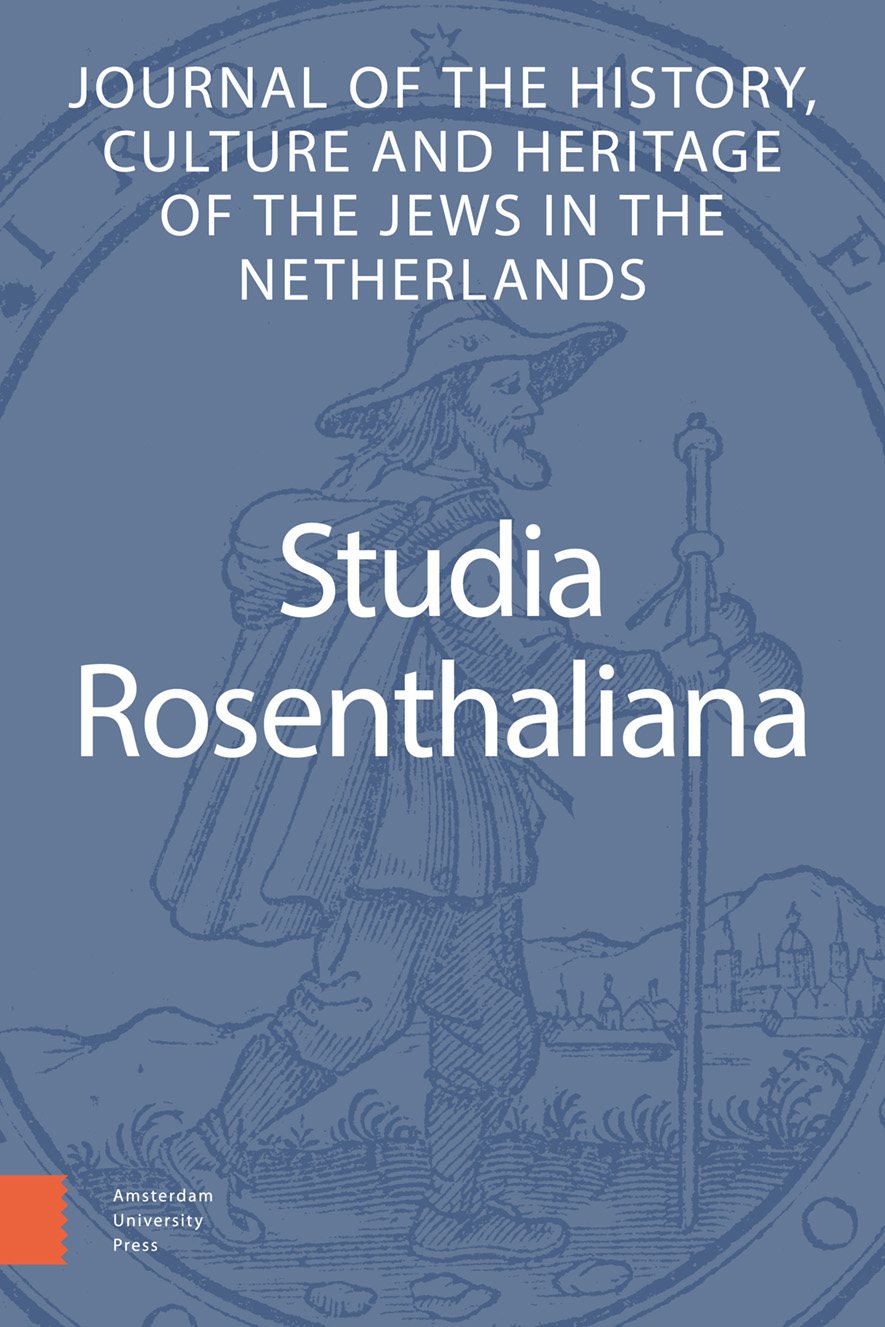-
oa Two Views of Yiddish Culture in the Netherlands
Yiddishist Universalism vs. Dutch Particularism in Yiddish Scholarly Writing
- Amsterdam University Press
- Source: Studia Rosenthaliana, Volume 47, Issue 2, Dec 2021, p. 117 - 138
Abstract
During the high period of Yiddish scholarship from the 1920s to the 1980s, scholars who worked in Yiddish studied Jewish life wherever Yiddish-speaking Jews lived. Rarely, however, did they write about communities where assimilation had already led to the abandonment of Yiddish. A unique exception is the Netherlands, which had been a leading center of Yiddish culture in the 17th and 18th centuries but turned almost exclusively from Yiddish to Dutch by the end of the 19th century. The existence of Yiddish scholarship on the subject of Yiddish cultural life in the Netherlands is, therefore, noteworthy. Still more noteworthy is that this relatively small body of work offers two contrasting views of Dutch Ashkenazi Jewish history.
The Yiddishist scholars who were active before World War II – all outside the Netherlands – exhibited an enthusiasm for Dutch Jewish studies that arose primarily from their desire to add a further link to the ‘golden chain’ of Yiddish cultural continuity, and they sought evidence of the prolonged existence of Dutch Yiddish culture. By contrast, Leo Fuks – who lived in the post-Yiddish Netherlands – found in Dutch society a catalyzing and liberating force that reshaped the seemingly static forms of pan-Yiddish culture, leading to both its flowering and ultimate decline in the Netherlands.


